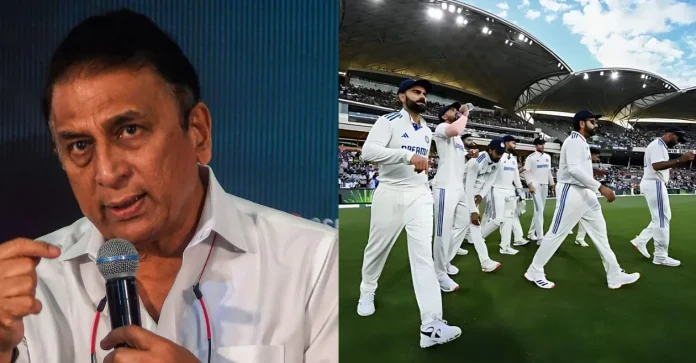
Few legends in the world of cricket resonate so deeply Sunil Gavaskar. The former Indian captain and batting maestro has always been a beacon of wisdom for cricket lovers and fans. After India’s disappointing 10-wicket defeat Australia in his second Test Border-Gavaskar TrophyGavaskar stepped forward with an open call for the Indian team. His message is clear: don’t waste the precious time until the next match. Instead, he urged the players to engage in serious training to regain their rhythm and confidence.
Sunil Gavaskar is a wake up call
The Pink-Ball Test at Adelaide ended prematurely after lasting less than two-and-a-half days. India shaken by a heavy defeat. With the loss, Australia leveled the series at 1-1 and raised questions about India’s performance under pressure. The Indian batting line-up weakened significantly, managing only 180 runs in the first innings and 175 runs in the second. The collapse highlighted not only Australia’s struggles against the pace attack, but also the urgent need for introspection and improvement.
Gavaskar’s advice comes at a crucial juncture. He emphasizes that the remaining matches should be treated as a new three-match series and not a continuation of the five-Test format. This shift in perspective could be crucial to the players’ mental approach as they prepare for the upcoming third Test, scheduled to begin in Brisbane on December 14.
“Look at the rest of the series as a three-match series. Don’t forget there are five Test series. What I would like this Indian team to do is use the next few days for training. This is very important. You cannot sit in your hotel room or wherever you go because you have come here to play cricket.” Gavaskar told the official broadcaster.
Also READ: AUS vs IND: India to make 3 changes for Gabba Test after Adelaide debacle
Practice over comfort: A tactical approach
In his speech, Gavaskar emphasized the importance of using the extra two days effectively. He firmly believes that players should not retire to hotel rooms, but instead use this time to train and improve their skills.
“You don’t need to train all day. You can practice in the morning or in the afternoon whenever you want, but don’t waste these days. If a Test match lasted five days, you would be playing a Test match here.” she added that even a single mindfulness session can make a significant difference. This proactive approach is important for players who struggle to find form and rhythm during a streak.
Moreover, Gavaskar “criticizes the concept.optional practice sessions,” said that such decisions should be the authority of the captain and the coach only. He argues that without forced training, complacency creeps in, especially among established players who may choose comfort over commitment. His argument is that every player must take responsibility for their performance, especially after a disappointing outing like the one in Adelaide.
“This optional practice session is something I don’t believe. The decision on additional training should be at the discretion of the captain and coach. The coach should say, hey, you hit 150, you don’t need to come to practice. Hey, you bowled 40 overs in a match, no need to come to practice. They should not be given a choice. If you give the players that option, a lot of them, especially the sureties, will say, “No, I’ll stay in my room.” Indian cricket doesn’t need this.” Gavaskar said.
Need to regain momentum for Team India
As India prepare for what could be a key match in the series, Gavaskar’s thoughts are not just about technical adjustments; they are also about developing a culture of dedication and hard work in the team. He pointed out that both batsmen and bowlers needed time in the middle to recover their rhythm, which was crucial after such a poor showing.
“You have to give yourself more time to get into a rhythm because you don’t have runs. Your bowlers have no rhythm. There are also those who need time” He emphasized that he has a legendary inclination.
The Indian bowlers in particular faced scrutiny as they failed to adapt to the conditions presented by the pink ball. Gavaskar highlighted how Australia took advantage of this weakness Head of TravisA perfect performance that showcases India’s weakness on quick wickets.


